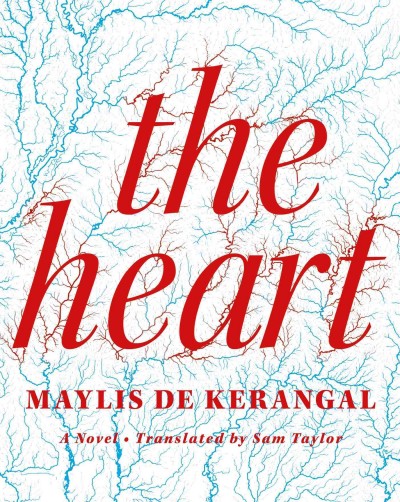
The thing about Simon Limbres’s heart, this human heart, is that, since the moment of his birth, when its rhythm accelerated, as did the other hearts around it, in celebration of the event, the thing is, that this heart, which made him jump, vomit, grow, dance lightly like a feather or weigh heavy as a stone, which made him dizzy with exhilaration and made him melt with love, which filtered, recorded, archived—the black box of a twenty-year-old body—the thing is that nobody really knows it; only a moving image created by ultrasound could echo its sound and shape, could make visible the joy that dilates it and the sadness that tightens it; only the paper trace of an electrocardiogram, set in motion at the very beginning, could draw the shape, describe the exertion, the quickening emotion, the prodigious energy needed to contract almost a hundred thousand times a day, to pump nearly ten pints of blood every minute, yes, only that graph could tell a story, by outlining the life of ebbs and flows, of gates and valves, a life of beats—for, while Simon Limbres’s heart, this human heart, is too much even for the machines, no one could claim to really know it, and that night, that starless and bone-splittingly cold night on the estuary and in the Pays de Caux, as a lightless swell rolled all along the cliffs, as the continental shelf retreated, revealing its geological bands, there could be heard the regular rhythm of a resting organ, a muscle that was slowly recharging, a pulse of probably less than fifty beats per minute, and a cell-phone alarm went off at the foot of a narrow bed, the echo of a sonar signal translated into luminescent digits on the touchscreen—05:50—and suddenly everything raced out of control.
* * * *
And so, that night, a van brakes in an empty parking lot, coming to a halt at a crooked angle, and as the front doors slam and a back door slides open, three figures emerge, three shadows outlined against the darkness and seized by the cold—icy February, runny noses, slept-in clothes—boys, it looks like, who zip their coats up to their chins, pull their hats down to their eyelashes, muffling the upper flesh of their ears with polar fleece, and—blowing into their cupped hands—turn toward the sea, which is at this hour nothing but noise and blackness.
* * * *
Yes, they’re boys, you can see that now. They are standing in a line behind the low wall that separates the parking lot from the beach, stamping their feet and breathing deeply, their nostrils sore from piping the iodine and the cold, and they survey that dark expanse where the only rhythm is the roar of the crashing waves, that din made by the final collapse; they scan what is rumbling before them, that crazy clamor with nothing to see—nothing except perhaps the whitish, foamy edge, billions of atoms catapulted against each other in a phosphorescent halo—and, stunned by the winter cold outside the van, dazed by the marine night, the three boys now pull themselves together, see and hear clearly again, assess what awaits them—the swell—judging it by ear, estimating its breaker index, its depth coefficient, and remember that waves formed offshore always move more quickly than the fastest boats.
Looks good, one of the three boys muttered softly, should be a good one, and the two others smiled, then the three went back together, slowly, scraping the ground with their feet and pacing around like tigers. They lifted their eyes to penetrate the night beyond the town, the still-black night behind the cliffs, and the one who had spoken looked at his watch—another fifteen minutes, guys—and they climbed back into the van to wait for the nautical dawn.
From THE HEART by Maylis de Kerangal. Used with permission of Farrar, Straus and Giroux. Copyright © 2014 by Éditions Gallimard. Translation copyright © 2016 by Sam Taylor.


